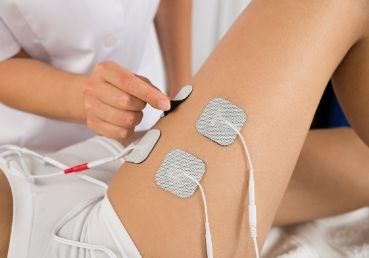
Advances in the medical field have provided us with a host of new technologies to help meet a wider variety of conditions than ever before. For instance, TENS units provide patients with an effective way to counteract pain without medication.
But any piece of medical equipment is only effective if the operator uses it correctly. This is true for TENS machines. Thus, learning the dos and don’ts of using TENS units can help patients get the most out of their experience with this incredible technology.
Here are things you should do when using TENS units.
Doing skin preparation before applying an electrode will help ensure proper electrical flow for a more effective treatment. Before you place an electrode, follow these instructions:
Be sure to examine the skin where you intend to place the electrode. Avoid placing your electrodes in injured or infected areas, such as open wounds, inflamed spots, or numb areas.
Before applying electrodes, identify the areas you would like to target, such as a hip or shoulder. Place your electrodes on either side of the pained area, using either two or four electrodes at a time. As with bandages, you can place electrodes horizontally, vertically, or at an angle.
If you have pain in your joints, professionals recommend placing the electrodes on the soft muscle below or above the joints instead of directly on them.
There isn’t a one-size-fits-all solution as far as the intensity levels go for TENS units. You’ll have to experiment with different levels until you find one that works best for you.
Generally, it’s best to start with a lower intensity at first. As you get used to it, you can increase it. You should feel a tingle on your skin where the electrodes sit. However, if your muscles contract too much or feel uncomfortable, you should choose a lower level.
There is a specific amount of time you can use most medical treatments before they become dangerous. Because TENS units are non-invasive and don’t utilize any drugs, you can use them as long as you need while doing other daily tasks.
If you’re unsure how long you should use your TENS unit, you can start by using it for 30- to 45-minute intervals. As you become more used to the unit and decide to utilize it longer, you can adjust how long you leave it activated.
The following are things to avoid when using TENS units.
You can use TENS units to treat various medical conditions, such as arthritis or diabetic neuropathy. However, there are several conditions that you shouldn’t combine with a TENS treatment.
For instance, because abnormal bursts of electrical energy in the brain cause seizures, treatments may potentially trigger seizures as well. TENS treatments may also throw off pacemaker functions for a similar reason. Women in the early stages of pregnancy should also hold off from undergoing treatments until they’re closer to giving birth.
Our nervous system produces a significant amount of electricity—enough to power a 15 to 20 watt light bulb. Consequently, it’s never advisable to place an electrode on your head or directly on your spinal cord.
You should also avoid placing electrodes directly on major arteries. This is especially true of the carotid artery in the neck. You can place electrodes on the back of your neck for effective pain relief, but you shouldn’t put them on your throat.
Some patients want to use TENS units to help treat TMJ (temporomandibular joint) disorder symptoms and issues related to other conditions that cause a locked jaw. While this is possible, it’s only safe if you use a low-voltage machine. Be sure to talk with the manufacturer and your doctor before using a unit for a TMJ disorder.
TENS units work in similar ways to car batteries. The two electrodes are necessary to complete the entire circuit for an electric charge. This is why you need at least two electrodes on a site for your unit to be effective, or—if you’re using a butterfly electrode—both sides need to touch your skin.
It’s also the reason why you should never overlap your electrodes when you place them on a site. When you place electrodes too close together, one side’s charge may diminish while the other becomes too strong. As long as you keep the electrodes at least one inch apart, they should still be effective.
After a TENS treatment, you may feel tempted to leave the electrodes in a bin and not think about them. However, doing this will lead your electrodes to dry out. The adhesive can also become damaged. Keep the following principles in mind when storing your electrodes:
Electrodes typically last approximately 30 uses before it’s time to replace them. If an electrode has completely lost its adhesion, you’ll want to replace it. Here at www.TENSproducts.com, we have TENS unit replacement pads to fit various units.
It’s common knowledge that electricity and water don’t mix without disastrous results. So naturally, you should avoid moisture while using a TENS unit. Before putting electrodes on, make sure your skin is entirely dry, and avoid using them near the bathtub or in the shower.
TENs units offer pain relief for various scenarios. For instance, they can help treat health conditions, such as fibromyalgia or diabetic neuropathy, and recurring pain from injuries or menstruation. However, there are a few situations where electrotherapy isn’t a good idea.
Knowing the dos and don’ts of using TENS units is the first step to deciding whether these treatments are right for you. When in doubt, consult your primary care physician.